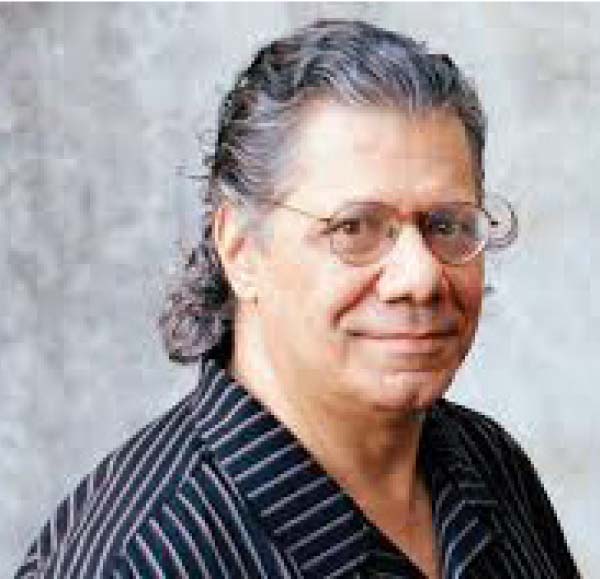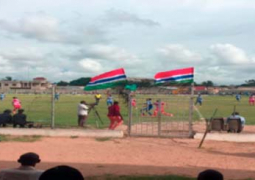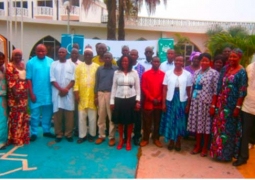
Although
Jazz music was created by African Americans in the southern part of the United
States, it was not always popular and black musicians had a rough time developing
the music until they moved north to Chicago and New York where they could play
with diverse musicians to diverse crowds.
The
development of the music was also helped by the advent of radio and the
proliferation of jazz clubs across the United States, but more importantly by
the fact that more black musicians were now able to play in white-owned venues
in the north where they would meet their fellow musicians who were at times of
Italian origin, Irish origin, Spanish origin etc.
Music
is a natural phenomenon and its values are universal. Jazz music is the
umbrella that covers all the different shades of music and is able to blend all
our musical experiences through improvisation and respect for individual
musicianship. It is all encompassing, very free and very democratic.
There
are many notable white jazz musicians from the early days of jazz to the
present and we will feature more of them as we continue this exercise on jazz
education. Our feature this week is about a jazz musician that is of Italian
and Spanish descent. His father was a jazz trumpeter who led a Dixieland band
in the Boston area in the 1930’s and 40’s; hence, he was surrounded by jazz
music during his childhood and was greatly influenced by the music of Dizzy
Gillespie, Charlie Parker, Bud Powell, Horace Silver and Lester Young.
His
birth name is Armando Anthony Corea, but he is commonly known as Chick Corea.
He was born in Chelsea, Massachusetts, USA on June 11th 1941. His father
introduced him to the piano at the age of four and he developed his piano
skills by exploring music on his own, until he was eight when he started taking
piano lessons from a concert pianist called Salvatore Sullo.
As
a student of Sullo, he was introduced to classical music, which helped spark
his interest in musical composition. He spent several years performing with
local groups in the Chelsea area, but later moved to New York where he studied
music at Columbia University and Julliard School of Music. He found the
academic aspect of music boring and disappointing and quit school to pursue a
professional career in music.
Chick
got his first major professional job with Cab Calloway who at that time, (60’s)
was playing with trumpeter Blue Mitchell and Latin music greats such as Mongo
Santamaria, Willie Bobo and Herbie Mann. While working with Blue Mitchell’s
quintet, he composed and recorded his first song called ‘Chick’s tune’, which
highlighted his leanings towards Latin and swing rhythms. He recorded his first
album as a leader in 1966 entitled ‘Tones for Joan’s Bones ‘ and in 1968 he
released another album called ‘ Now he sings, Now he sobs ‘ with Roy Haynes on
drums and Miroslav Vitous on bass.
In
1967 Chick appeared as a sideman with Stan Getz on Getz’s album – ‘Sweet Rain’.
He was greatly influenced by bebop and had strong attraction towards
avant–garde jazz. He was a member of Miles Davis’s band in the 60’s and
participated in the birth of the electric jazz- fusion movement. However, he
has been versatile and always willing to operate as a free agent, exploring
different avenues of music making throughout his career.
While
working with the Miles Davis Band, he appeared on landmark albums such as ‘
Filles de Kilimanjaro ‘, ‘ In a Silent Way ‘ and ‘ Bitches Brew ‘. He appeared
on a series of Miles’s albums including ‘ Black Beauty’, ‘ Live at the Filmore
West ‘ and ‘ Live at the Filmore East ‘. Chick also toured extensively with
this band which had Steven Grossman on tenor sax, Keith Jarrett on additional
electric piano and organ, Jack DeJohnette on drums, Dave Holland on bass, Airto
Moriera on percussion and Miles on trumpet.
He
left Miles’s band in 1970-71 with Dave Holland and together they formed a new group
called – ‘Circle ‘, playing the brand of jazz known as Free Jazz. He would
later go on his own to explore new horizons. He was known for his exceptional
solo performance and would at times reach into the body of the piano and pluck
the strings creating a unique sound. Around the same time, Chick was making a
switch from avant-garde jazz to a crossover jazz fusion that incorporated Latin
jazz elements. In 1971 he founded the band – Return To Forever.
This
group concentrated on electrical instrumentation and drew more on Brazilian and
Spanish-American musical styles. In 1972, while still working with his band –
Return To Forever, he put together another group of musicians for Stan Getz,
featuring Stanley Clarke on bass, Tony Williams on drums, Corea himself on
piano, and they recorded the album –
‘Captain Marvel‘ under Getz’s name.
Corea’s band ‘Return to forever’, stayed active and recorded together until in 1977when it was disbanded and he then focused on solo projects. Among his musical compositions, the song ‘Spain’ is considered the most popular piece. In 1992 he did a collaborative piano and voice-as-instrument with Bobby McFerrin. Earlier in1976 he released ‘My Spanish Heart’ which had Latin American musical influence and featured electric violinist Jean-Luc Ponty. In the 70’s, Corea also worked occasionally with vibraphonist Gary Burton with whom he recorded several duet albums including the 1972 release – Crystal Silence. Later towards the end of the 70’s he did a series of concerts and two albums with Herbie Hancock.
In
2007, he recorded another duet album, this time with Banjoist Bela Fleck. The
album was called ‘The Enchantment’ and Chick toured extensively behind this
album. In 2008, he collaborated with Japanese pianist Hiromi Uehara and
recorded a live album entitled – Duet (Chick Corea and Hiromi). In his endless
search for musical variety, he formed other bands, which included – The
Electric Band, The Akoustic Band and the Band – ORIGIN. The Akoustic Band was a
turn back to traditional jazz and earlier in 1989, they released a self-titled
album featuring John Patitucci on bass and Dave Weck on drums.
In
recent years, Corea has shown rising interest in classical music and composed a
few piano concertos. In 2008, Return to Forever came back together for a world
tour. The band consisted of Corea on keyboards, Stanley Clark on bass, Leny
White on drums and Al DiMeola on guitar. They also toured extensively and
recorded re-releases of earlier songs on a compilation album entitled – Return
to Forever: The Anthology.
Chick
Corea is still around writing songs and occasionally playing the music he
love-JAZZ. We hope you are enjoying reading about jazz as much as I enjoy
sharing with you the little I know.



